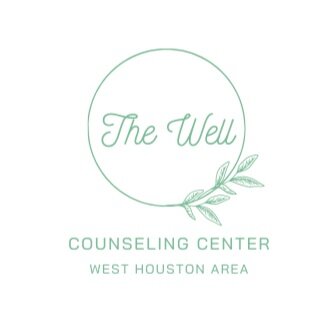How to Master Self-Regulation: Strategies for Mental Well-being
Do you often find yourself trying to keep it all together while under the surface you sense yourself close to the edge of a total breakdown? Or maybe you manage to keep your frustration at bay during the work day, but the moment your kiddo throws a fit at dinner time, you totally lose your cool? The ability to acknowledge and process our thoughts and feelings is a learned experience. Effective self-regulation enables individuals to navigate life's challenges, cope with stressors, regulate interpersonal interactions, and pursue long-term goals despite obstacles or distractions.
Self-regulation is one’s ability to recognize, name, and manage their emotions. There are many benefits of learning how to self-regulate:
Improved emotional well-being: regulating emotions can help reduce stress and anxiety, lead us to focus on the goodness around us rather than feeling stuck in negativity, and give us an overall sense of calm and peace
Deeper relationships: being able to self-regulate can enhance communication skills because we will actually be able to acknowledge and name what we are feeling, and listen from a place of peace rather than defense
Increased resilience: self-regulation skills can help us to move through struggles and setbacks with hope, knowing that we don’t have to become fully consumed by our trials
Healthy modeling for those around us: take a moment to imagine what life might be like now if your ability to self-regulate had been nurtured from the time you were a child. No shade to previous generations, but now that we know more we have the tools to do more! As parents, we get to foster healthy emotional regulation in our children. Co-regulation is the idea that our calm is their calm.
(Listen here for our episode on the Blooming Books Podcast, all about Self-Regulation with kiddos)
Now, if it were easy, we’d all be perfectly self-aware and able to manage our thoughts, feelings, and behaviors! Unfortunately, there are many factors that may potentially be inhibiting our ability to self-regulate:
A dysregulated nervous system can significantly impact various aspects of an individual's functioning, including physical health, emotional well-being, cognitive performance, and sleep quality.
Unhealthy coping patterns that we have relied on in various seasons of our lives can be hard to change.
Other influences can keep us feeling stuck— stuck in relationships where we struggle to advocate for ourselves, feeling the need to please people even if it means neglecting our needs, and even being inundated with social media “highlight reels” that make it feel like we’re never doing enough.
First of all, we are not alone in the struggle to self-regulate. And because of that, here is hope and help out there! Neuroplasticity is one of the most exciting things about the brain. Simply put, this means that our brains have the ability to adapt and change! Imagine yourself in a forest, standing in dirt. You grab a stick and start drawing in the dirt– creating “new pathways”. Every time you go over that specific line, the indention gets deeper. Each time we choose to practice in a new healthier way (reframing thoughts, pausing to breathe, etc), our neural pathways are further “indenting” that specific pathway. The more we do it, the more natural it becomes.
Okay great… but what are these new practices to even try?! Here’s are some practical tools to not only help calm yourself in the moment, but to incorporate into your daily rhythms so that you can choose peace before the chaos even begins:
Mindfulness, breathwork, and grounding techniques
Establishing healthy boundaries, seeking out rest by doing things that you enjoy, creating margin in your day
Processing cognitive distortions (patterns of biased or irrational thinking that can negatively influence our perceptions) and practicing self-compassion
Sometimes, despite our best efforts, navigating life's challenges alone can feel overwhelming and ineffective. Seeking therapy provides a supportive and professional environment where you can gain valuable insights about yourself and how you show up, learn practical coping strategies, and receive personalized encouragement on how to cultivate positive change in your life. We would love to be a support for you on your journey to wellness!
Written by: Carly Kirk, LCSW-S
